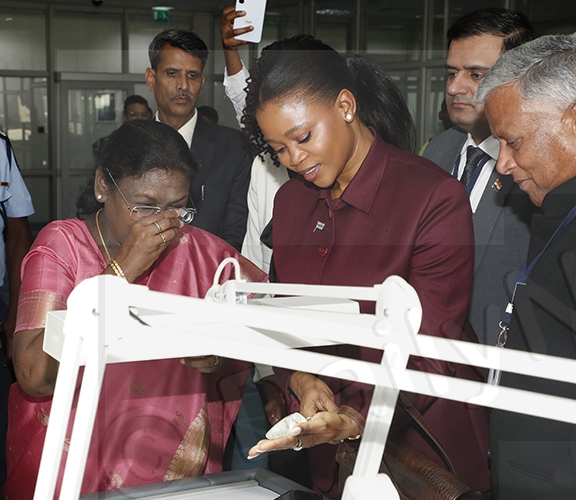Industrialisation critical to intercontinental trade
04 Oct 2020
Botswana like the rest of Africa has moved from resource intense sectors to service sector growth with relative to no trace of industrial development.
However opinion leaders have argued that industrialisation could be key.
According to a recent installment of a webinar series on the implementation of the Africa Continental free trade Agreement (AFCFTA) facilitated by the business kraal, there were consolidated views from panelists that industrialisation could be key to building significant trade linkages with the rest of Africa and the world.
Nigeria High Commissioner to Botswana Mr Umar Salisu noted that linkages provided by the AFCFTA once implemented would provide noticeable returns and high economic activity to manufacturers and SMMEs across Africa.
He said the agreement thus provided impetus for industrialisation elements for African economic integration.
Mr Salisu said governments needed to take a lead in ensuring that policy frameworks were accommodative for high intensive industrialisation within African countries where tripartite agreements between governments, private sector and finance institutions needed to strengthen commodity markets to improve bargaining power.
He said industrialisation could enable the prosperity of value chains and stimulate job creation and a turning point for Africa.
Stanbic Bank Botswana Chief Operating officer Mr Samuel Minta added that Africa needed young African industrialists and business owners who could create the capacity to generate capital for driving economic transformation.
He said young people had the capacity to leverage robotics, artificial intelligence, 3D printing and quantum mechanics to increase and stimulate high churning industrial sectors across Africa, further noting that the level of cognition needed to leap frog industrialisation came with young people.
Furthermore, of the 1.4 billion people seeking to conquer poverty across Africa, the consensus was that intercontinental trade would be stimulated by an integration of trade instruments that had the power to stimulate high value chains.
Among this, Mr Minta noted that African manufacturers needed to take advantage of the many strategic vulnerabilities that had been exposed by the COVID-19 pandemic to create value adding commodities critical to a self-sustaining Africa.
Chief Director of trade negotiations at the international trade and economic development in the department of trade of industry in South Africa, Ms Niki Kruger gave illustrations of the automotive industry in South Africa as an example of gains that could be made through strategic industrialisation instrument.
She said in order to make gains from AFCFTA, African countries needed to make efforts in building regional value chains, economic diversification programmes.
“We don’t want to only increase trade but improve levels of value added goods that contribute to the economic prosperity of Africa and that is why industrialisation is critical,” she said.
She said the agreement was thus important in liberalising tariffs between African countries to enable more trade activity and improve value chain growth. ends
Source : BOPA
Author : Gobe Memo
Location : GABORONE
Event : Panel discussion
Date : 04 Oct 2020





